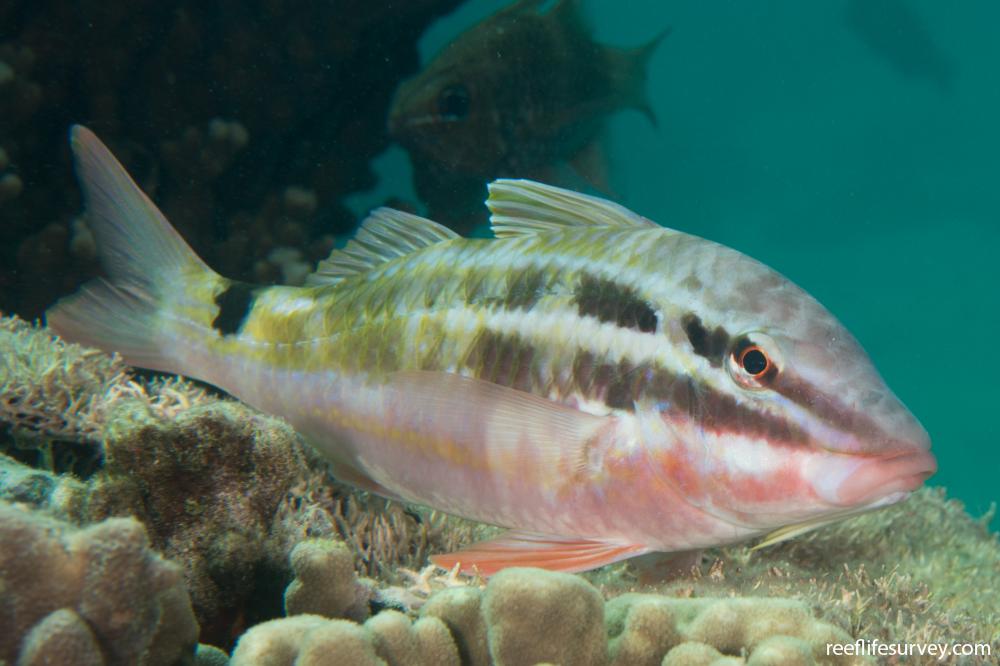Parupeneus spilurus
Black-spotted goatfish | Blackspot Goatfish | Japanese Goatfish | Red Goatfish | Parupeneus signatusSimilar Species
Same Genus
Distribution
Temperate Australasia, Temperate northern Pacific, Tropical Indo-Pacific
Description
Alternating red and white bands along the body, the first two whites passing either side of the eye and fading below second dorsal fin, the third passing across pectoral fin base and extending to tail base. Dark brown to yellow interspaces between stripes and pinkish grey elsewhere on body. Distinctive black spot at the rear of the body behind the dorsal fin. Although a tropical species, schools of juveniles are often seen by divers on sand beside reefs in sheltered bays near Sydney and Perth.
Information
Max Size: 36 cm
Sea Temperature Range: 15.3-25.6°C
Depth: 1-80m
Habitat Generalization Index: 33.68
Also referred to as the SGI (Species Generalisation Index), this describes the habitat niche breadth of the species. Species with values less than 15 are found in a relatively narrow range of reef habitat types (specialists), while those over 25 may be found on most hard substrates within their range (generalists). Learn more here.
Conservation and Rarity
IUCN Status: Not Evaluated
Occurrence: Common (22.0% of sites)
Occurrence describes how often the species is found on surveys within its distribution. It is calculated as the % of reef sites surveyed by RLS divers across all the ecoregions in which the species has been observed
Abundance: Several (7 per transect)
Abundance is calculated as the average number of individuals recorded per RLS transect, where present.
Edit by: GJ Edgar. 2008. Australian Marine Life. New Holland, Sydney























